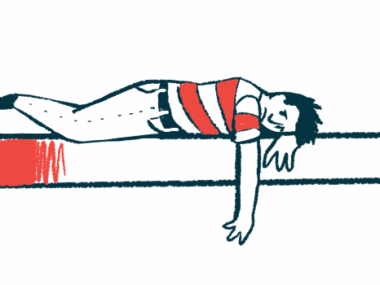Woman’s Depression Eases After Treatment for Cushing’s in Case Study
Written by |

Early diagnosis and treatment of Cushing’s disease could help prevent or diminish mental health crises, a recent report suggests.
In the rare case study, a woman with a history of suicidal depression was found to have Cushing’s disease caused by a pituitary tumor in her brain. Her symptoms eased considerably after surgery and adequate treatment.
“To the best of our knowledge this is the first case [of Cushing’s disease] documented in Saudi Arabia,” the researchers wrote.
The report, “A Case of Cushing’s Disease Presenting with Isolated Suicidal Attempt,” was published in the journal Clinical Medicine Insights: Case Reports.
In Cushing’s disease, a pituitary tumor in the brain triggers the abnormal production of adrenocorticotropic hormone (ACTH), resulting in the increased production of cortisol by the adrenal glands sitting atop the kidneys.
As a result of the high cortisol levels, people with Cushing’s may experience a variety of symptoms, including weight gain and skin problems. However, mental issues such as anxiety, major depression, and sleeping difficulties have also been reported. Cases of suicide attempts by Cushing’s patients have rarely been documented.
In this study, researchers described the case of a 23-year-old woman who was admitted to the Al-Amal complex of mental health in Riyadh, Saudi Arabia, and who had a history of suicidal thoughts and self-destructive behaviors.
She complained of low mood, sadness, inability to sleep well, and an overall lack of interest for the past four months. The patient also had some classical symptoms of Cushing’s, including weight gain, face swelling, excessive hair growth, and irregular periods for three months.
Doctors prescribed 40 mg of fluoxetine, an antidepressant sold under the brand name Prozac, among others, and 100 mg of quetiapine, an antipsychotic sold under the brand name Seroquel, which is used to treat schizophrenia and bipolar disorder.
At the endocrinology clinic at King Fahad Medical City, in Riyadh, the woman underwent lab testing which revealed her 24-hour urinary free cortisol levels were three times higher than normal. In addition, a low-dose dexamethasone suppression test failed to reduce her cortisol and ACTH levels, suggesting the presence of Cushing’s.
An MRI scan showed the woman had a small tumor, called a microadenoma, on her brain’s pituitary gland, consistent with the diagnosis of Cushing’s disease.
After the tumor was surgically removed, her cortisol and ACTH levels dropped, and she started cortisol-replacement therapy with hydrocortisone. Three months after the surgery, her cortisol levels were within a normal range.
Her mental health issues and depression eased, but did not resolve. This might be due to the high levels of cortisol she had, which can have toxic long-term effects on the brain, the researchers noted.
Five months after surgery, she no longer needed fluoxetine and is currently taking only quetiapine.
“Symptoms of depression and Cushing syndrome overlap, so diagnosis and treatment of Cushing disease can be delayed,” the researchers wrote. “Early diagnosis and prompt management of [high cortisol levels] may aid in preventing or lessening psychiatric symptoms.”
“The variable neuropsychiatric disorders associated with Cushing syndrome post-remission necessitates long term follow up,” they added.







